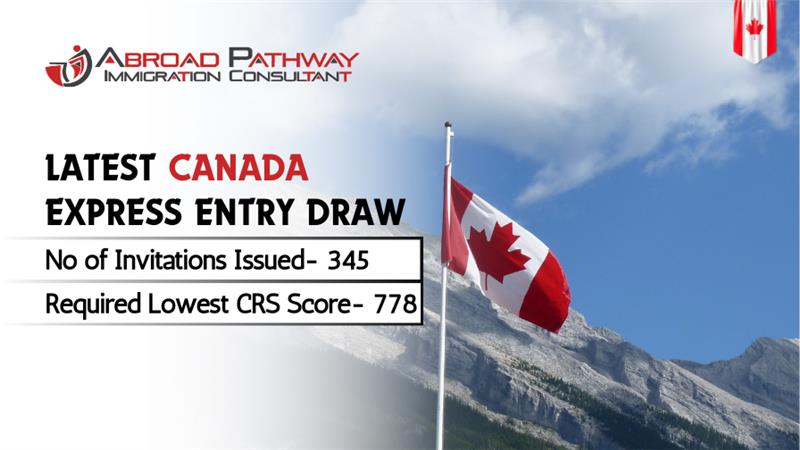Are you dreaming of working abroad and exploring new career opportunities? Look no further than Canada, one of the world's leading economies and a perfect destination for skilled workers. With over 1 million job vacancies and relaxed work policies, Canada offers a promising environment for individuals seeking to work and migrate permanently. In this comprehensive guide, we will walk you through the process of obtaining a Canada work permit, the eligibility requirements, various types of permits, and the benefits of working in Canada.
What is a Canada Work Permit?
A Canada work permit is an authorization issued to foreign nationals who meet specific eligibility requirements and have received a job offer or employment contract from a Canadian employer. To recruit foreign skilled workers, Canadian employers must obtain a Labour Market Impact Assessment (LMIA) from Employment and Social Development Canada (ESDC). This assessment allows them to fill occupations that cannot be filled by citizens or permanent residents of Canada.
Canada Work Permit Requirements
To apply for a Canada work permit, you need to meet certain eligibility requirements, including:
- Age: Below 45 years
- Skilled work experience: Minimum of 2 years in a National Occupational Classification (NOC) category of TEER Level 0, 1, 2, or 3
- Valid job offer: Issued by a Canadian employer with a positive LMIA
- Employment contract
- Copy of the LMIA
- LMIA number
Canada Work Permit Process
Obtaining a Canada work permit involves several steps. Let's take a closer look at each stage of the process:
Step 1: Choose the Right Program
Before applying for a work permit, it is essential to explore and choose the most suitable immigration program for your profile. Some of the popular programs include the Express Entry system, Provincial Nominee Program (PNP), or specific streams like the Atlantic Immigration Pilot.Step 2: Obtain a Job Offer
To secure a job offer, you need to connect with Canadian employers who are willing to hire foreign workers. The employer may need to obtain an LMIA from ESDC to prove the need for a foreign worker.
Step 3: Gather Required Documents
Collect all necessary documents, including identification, educational qualifications, proof of work experience, language proficiency test results, and a valid job offer letter.
Step 4: Apply for the Work Visa
Create an online profile and provide details about your skills, work experience, education, language proficiency, and other relevant information. Submit the online application form and upload all required documents through the appropriate immigration portal. Pay the necessary fees.
Step 5: Biometrics and Medical Examination
Attend a biometrics appointment at a designated location and complete a medical examination by an approved panel physician. The results of the medical examination will be submitted directly to the immigration authorities.
Step 6: Wait for Processing
Be patient while your application is processed. The processing time for a Canada work permit can vary based on the type of permit and the immigration program you have applied through.
Step 7: Receive the Canada Work Permit
Once your application is approved, you will receive your Canada work permit. Review the details, including the type of work, locations, and duration specified on the permit.
Step 8: Settle in Canada
Arrive in Canada before or on the specified date on your work permit. Ensure compliance with the conditions outlined in your permit. If you are interested, you can explore pathways to permanent residency in Canada, such as the Express Entry's Canadian Experience Class or Provincial Nominee Programs.
Types of Canada Work Permits
Canada offers various types of work permits, each catering to specific categories of workers. Let's explore some of the most common types of Canada work permits:
1. Temporary Foreign Worker Program
The Temporary Foreign Worker Program allows Canadian employers to hire foreign workers for temporary positions when qualified Canadian citizens or permanent residents are not available. This program requires an LMIA from ESDC.
2. Intra-Company Transfers
Intra-Company Transfers allow multinational companies to transfer their employees to a Canadian branch, subsidiary, or affiliate. The employees must have been working for the company for a specified period and possess specialized knowledge or executive/managerial skills.
3. LMIA Required
Some work permits require a positive LMIA, which proves the need for a foreign worker. This category includes occupations that are in high demand but face a shortage of Canadian workers.
4. LMIA Exempt
Certain categories of workers are exempt from the LMIA requirement, such as NAFTA professionals, researchers, and participants in international agreements.
5. Business Visitors
Business visitors engage in international business activities without directly entering the Canadian labor market. They do not require a work permit.
6. International Experience Canada (IEC)
IEC allows young individuals from partnering countries to travel and work in Canada for up to 2 years. It includes programs like Working Holiday, Young Professionals, and International Co-op (Internship).
7. Post-Graduation Work Permits
Graduates from Canadian post-secondary institutions may be eligible for a post-graduation work permit, allowing them to gain valuable work experience in Canada.
8. Open Work Permits
Open work permits allow individuals to work for any employer in Canada, except for those involved in certain restricted industries. Spousal open work permits, temporary work permits for spouses, and post-graduation work permits are examples of open work permits.
9. LMIA Canada
The Labour Market Impact Assessment (LMIA) is a crucial component for certain work permits in Canada. It helps assess the impact of hiring a foreign worker on the Canadian labor market.
Canada Work Permit Processing Time
The processing time for a Canada work permit varies depending on the type of permit and the immigration program you have applied through. On average, the processing time for overseas applicants ranges from 2 to 3 months. However, it is important to note that processing times can change and are subject to individual circumstances.
Apply for Jobs in Canada
Canada offers a wealth of job opportunities across various sectors. Here are some of the top in-demand occupations in Canada, along with their average salary ranges:
| Occupation | Average Salary Range (CAD) |
|---|---|
| Sales Representative | $52,000 to $64,000 |
| Accountant | $63,000 to $75,000 |
| Engineering Project Manager | $74,000 to $92,000 |
| Business Analyst | $73,000 to $87,000 |
| IT Project Manager | $92,000 to $114,000 |
| Account Manager | $75,000 to $92,000 |
| Software Engineer | $83,000 to $99,000 |
| Human Resources | $59,000 to $71,000 |
| Customer Service Representative | $37,000 to $43,000 |
| Administrative Assistant | $37,000 to $46,000 |
With over 1 million job vacancies in Canada, finding the right job for your skills and experience is possible. Various job search services, such as Abroad Pathway Immigration, can assist you in finding the perfect job opportunity that aligns with your career goals.
Benefits of Canada Work Permit Visa
Working in Canada under a work permit visa offers numerous benefits, making it an attractive option for skilled workers. Here are some of the advantages of obtaining a Canada work permit:
- Career Opportunities: Canada has a strong job market with over 1 million job vacancies. This provides ample opportunities for foreign workers to explore and advance their careers.
- Migration Pathway: A Canada work permit visa can serve as a pathway to permanent residency. By gaining Canadian work experience, you may become eligible for permanent residency programs such as Express Entry's Canadian Experience Class or Provincial Nominee Programs.
- Quality of Life: Canada is known for its high standard of living, excellent healthcare system, and safe and welcoming communities. Working in Canada can provide you and your family with a better quality of life.
- Investment and Retirement: Working in Canada allows you to invest your earnings in the country's stable economy and earn in Canadian dollars. Additionally, you can benefit from retirement plans and social security benefits offered by the Canadian government.
- Travel Opportunities: Canada is a vast and diverse country, offering breathtaking landscapes and vibrant cities. Working in Canada gives you the chance to explore the country's natural wonders and cultural attractions.
- Education and Healthcare: Canada provides access to world-class education and healthcare systems. As a work permit holder, your children can attend Canadian educational institutions without separate study permits, and you and your family can enjoy free healthcare benefits.
How Can Abroad Pathway Immigration Help You?
As an immigration consultant specializing in Canada immigration, Abroad Pathway Immigration offers comprehensive services to assist you throughout the entire process. Here's how Abroad Pathway Immigration can help you:
- Free eligibility check through the Canada Immigration Points Calculator
- Expert guidance for Canada immigration and work permit applications
- Coaching services for language proficiency tests like CELPIP and IELTS
- Free career counseling to help you choose the right path
- Complete guidance for Canada PR visa applications
- Job search services to find relevant jobs in Canada
With Abroad Pathway Immigration's expertise and support, you can navigate the complexities of the Canada work permit process and increase your chances of success. Contact us today to evaluate your eligibility and take the first step towards your Canadian dream.






